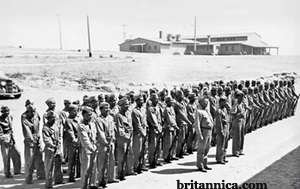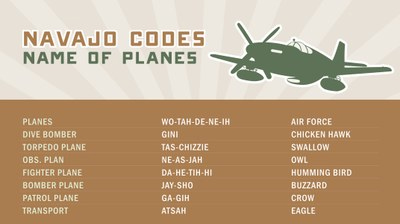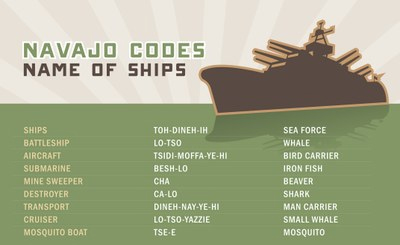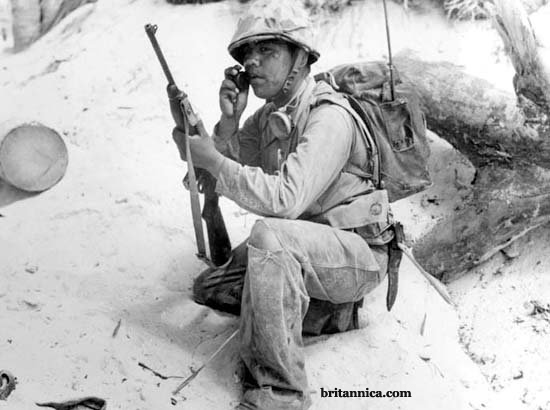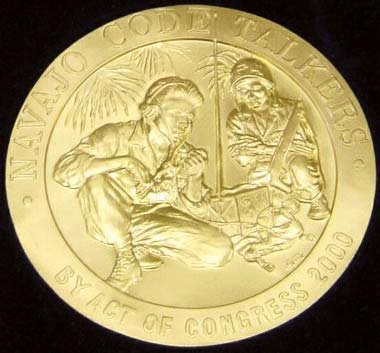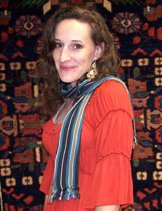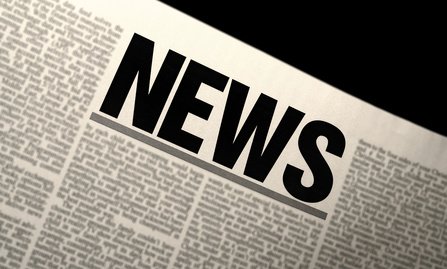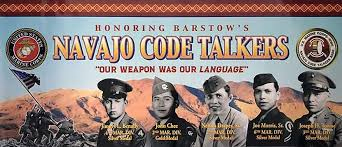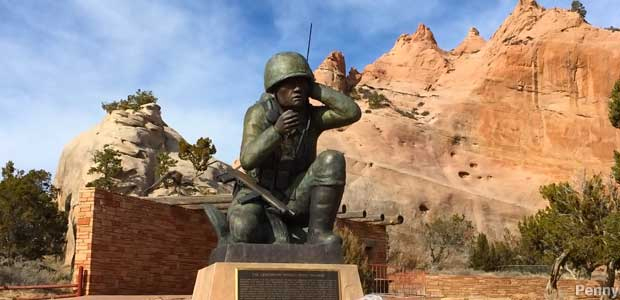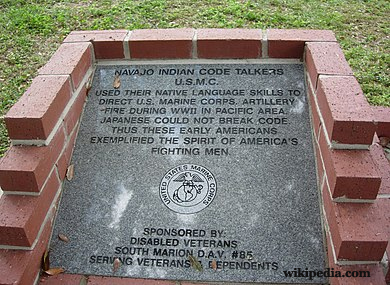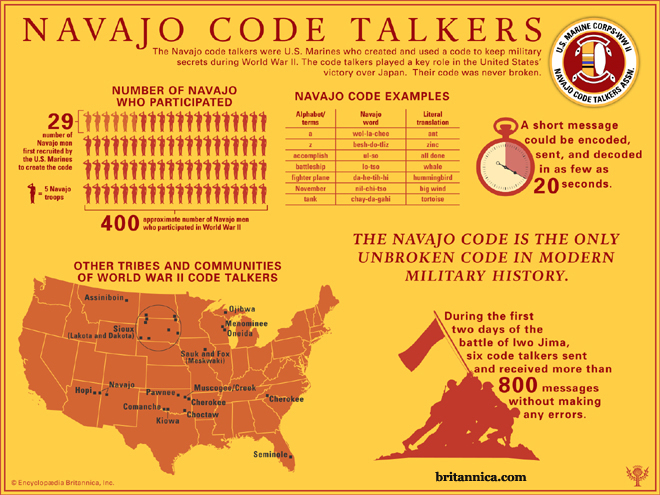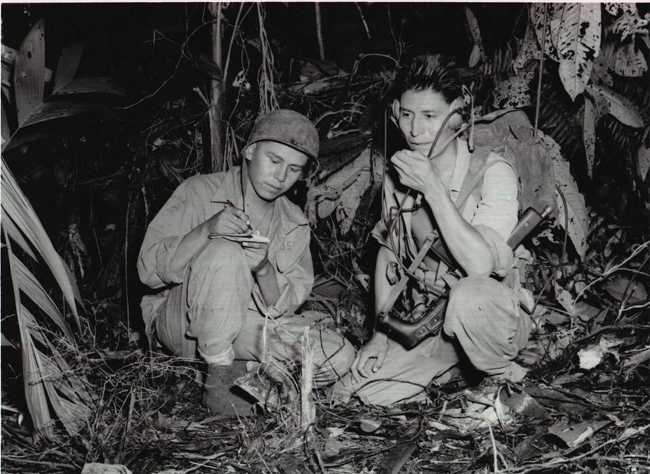NAVAJO CODE TALKERS
August 14th
CODE TALKER DAY
Navajo Code Talkers and Navajo Marines are among the over 16 million Americans who served during World War II and are honored throughout each year as members of the Greatest Generation.
NAVAJO MARINE PLATOON
Among these
veterans are a group of 400 Marines, members of the all-Navajo 382nd
Marine Platoon, who are credited with saving thousands of lives in Iwo Jima and
other Pacific Island battles.
29 NAVAJOS - THE ORIGINAL CODE TALKERS
The Marines recruited and trained 29 Navajos at Camp Elliott near San Diego beginning in 1942. Those 29 Navajo were charged with creating a code that could not be broken by the enemy. They generated more than 200 new Navajo words for military terms and committed them to memory.
USING NATIVE AMERICAN LANGUAGE AS CODE
The idea to use a Native American language as a code was not new. The US military had used the Choctaw language during World War I as part of its secret code, but Germany and Japan had worked to learn Choctaw and other Native American languages during the interwar period.
The Navajo language was perfect for the code since it had tonal qualities that were difficult for non-native speakers to distinguish and because there was not a large written record of the language.
THE NAVAJO CODE
The code talkers worked under great pressure to create a cypher and dictionary of signals in their language, a code so unique it could safely transmit vital information about troop movements and field operations over radio and telephone.
They delivered over 800 messages without error and were later credited for accelerating the date of V-J Day, but they were sworn to silence. They returned to their homes after the war and were not allowed to discuss what they had worked on.
WHY THE NAVAJO CODE TALKERS WERE NOT HONORED UNTIL 1968
For 26 years their actions were kept top secret. Since the codes that they developed remained unbroken, the US military wanted to keep the program classified in case the code talkers were needed again in future wars.
AT LAST - THE HONORS
1968
Finally, their mission was unclassified. The Navajo nation was as surprised and proud as the rest of the country when they learned of the huge contribution these veterans had made. The code remains the only unbreakable convention in modern military history.
1982
President Ronald Reagan gave the Code Talkers a Certificate of Recognition and proclaimed August 14 as National Navajo Code Talkers Day.
1992
35 Navajo Code Talker veterans were honored at the Pentagon during the dedication of an exhibit that included field equipment, radios, photographs, and explanations of how the code worked.
2000
President Bill Clinton signed a law which awarded the Congressional Gold Medal to the original 29 Code Talkers.
2001
President George W. Bush presented the medals to the four surviving Code Talkers at a ceremony held in the Capitol Rotunda in Washington.
2017
Three of the
surviving code talkers were honored at the White House by President Trump. At
the ceremony, Major Howard Connor, the signal officer of the Navajos, stated that
if it were not for the Navajos, the Marines would never have taken Iwo Jima!
The Navajo code talkers have been celebrated in movies, television, and many articles since their deeds became public.
Chester Nez, the last of the original 29 code talkers who developed the code, died in June 2014 at the age of 93.
2020-SOUTH KOREA HONORS the NAVAJO NATION
Some 800 soldiers from the Navajo Nation served in the Korean War in the early 1950s. During the COVID pandemic, in gratitude for their service, the South Korean government sent 10,000 N95 masks and literally tons of other PPE equipment to the Navajo Nation, which has been hard hit by the Coronavirus. Some of the equipment was also used for the Hopi Nation and a number of small rural communities in Arizona.
"The Cleanest Clean You've Ever Seen."
by
ABC Oriental Rug & Carpet Cleaning Co.
130 Cecil Malone Drive Ithaca, NY 14850
607-272-1566
